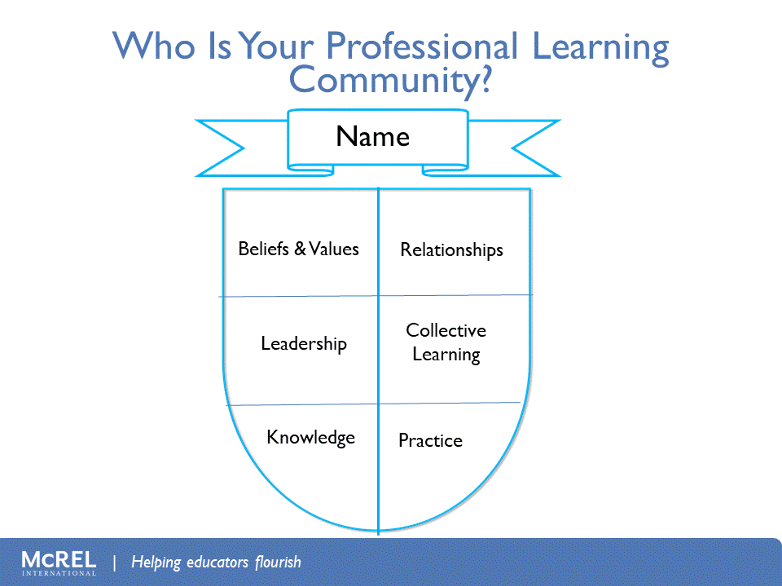Hey! I am Lisa Jones, a Managing Researcher with McREL International. The abrupt shift to virtual learning for PreK-12 teachers increased their reliance on one another as they adjusted from a physical to a technological classroom. Recently, an elementary school principal told us that teachers reached out to one another to make this shift work. Voila! The essence of a professional learning community.
As evaluators, we experience staff meetings disguised as Professional Learning Communities (PLCs). Key PLC features (shared beliefs, values, and vision, collective learning, and shared personal practice) are conspicuously missing. Educators may focus on interim and student assessment data without understanding how and why students perform the way they do. The PLC is an ideal vehicle for teachers to use action research to understand student performance.
Lessons Learned: Four action research components useful for PLCs:
- Employ reciprocal relationships between theory and practice. Flooded with initiatives promising increased student outcomes, teachers often use strategies with limited understanding and training, which leads to inadequate outcomes. Action research, incorporated into PLCs, helps educators delve deeply into the strategies and connect them to their current classroom practices.
- Action research includes reflexivity. Reflexive dialogues within PLCs encourages collective learning, uncovers hidden assumptions, perceptions, and beliefs that affect student outcomes, and capture the essence of teachers’ contributions to student learning.
- Know the problem of practice addressed. “Low proficiency levels” are frequently identified as “the problem.” PLCs provide focus on specific lessons and outcomes to understand teaching and learning. Is the problem really, “How can I get my kids to proficiency?” Or, is it grounded in “How are my students learning and showing what they learned?”
- Identify the appropriate data sources. Interim and summative assessment outcomes are insufficient for understanding student learning. Student work (evidence of mathematical thinking, written essays, or lab notes) reveals how students are using and integrating knowledge. Integration of external data sources (student work) with instructional practices help teachers grasp how specific actions affect student outcomes.
Taken together, these components offer a framework for teachers to create useful knowledge that will contribute to better student outcomes. How does this relate to program evaluation in PreK-12 settings? Evaluators assess the effectiveness of specific curricula or organizational initiatives. A limited focus on implementation fidelity obscures the underlying contributors to program outcomes. As evaluators, we can urge educators to use action research in their PLCs to confront problems of practice, which becomes our tool for deeper understanding about program implementation and effectiveness.
Hot Tip 1: Know the content and the context. Program effectiveness is context-dependent. Integrating program content and context offers evaluators deeper understanding as to how and why specific outcomes emerged.
Hot Tip 2: Create artifacts as data collection tools. We designed a shield and asked participants to reflect on the current state of their PLC. The data collected from teachers offered evaluators an insight into how multiple PLCs work within a school site.

Rad Resources:
The American Evaluation Association is celebrating Ed Eval TIG Week with our colleagues in the PreK-12 Educational Evaluation Topical Interest Group. The contributions all this week to aea365 come from our Ed Eval TIG members. Do you have questions, concerns, kudos, or content to extend this aea365 contribution? Please add them in the comments section for this post on the aea365 webpage so that we may enrich our community of practice. Would you like to submit an aea365 Tip? Please send a note of interest to aea365@eval.org. aea365 is sponsored by the American Evaluation Association and provides a Tip-a-Day by and for evaluators.

Lisa,
This was a fantastic and very informative read. I agree that PLCs are a great resource for teachers if they’re used efficiently as additional support when brainstorming how best to tackle problems. In my experience as a substitute teacher, talking to other staff members around you and building off of their strategies is a great jumping off point for adapting to classroom issues.
Great post-Lisa! Thank you for including the link to reflexivity. That will be something I share with students.
Cheers,
Sondra